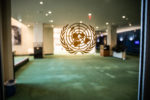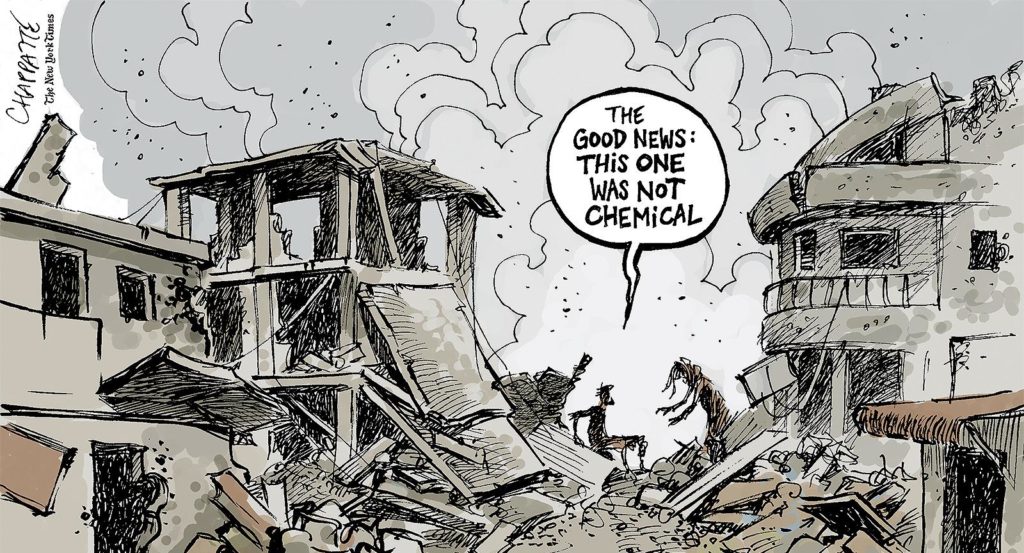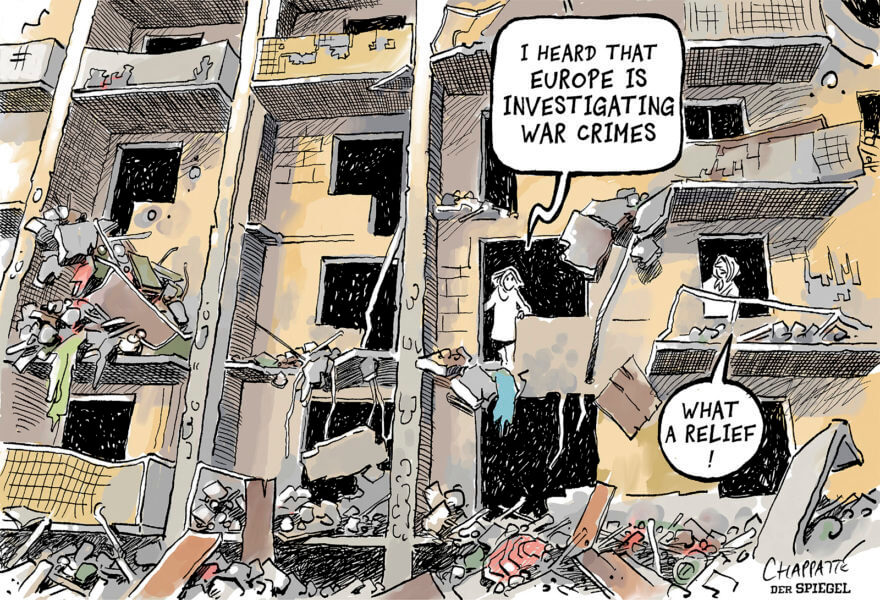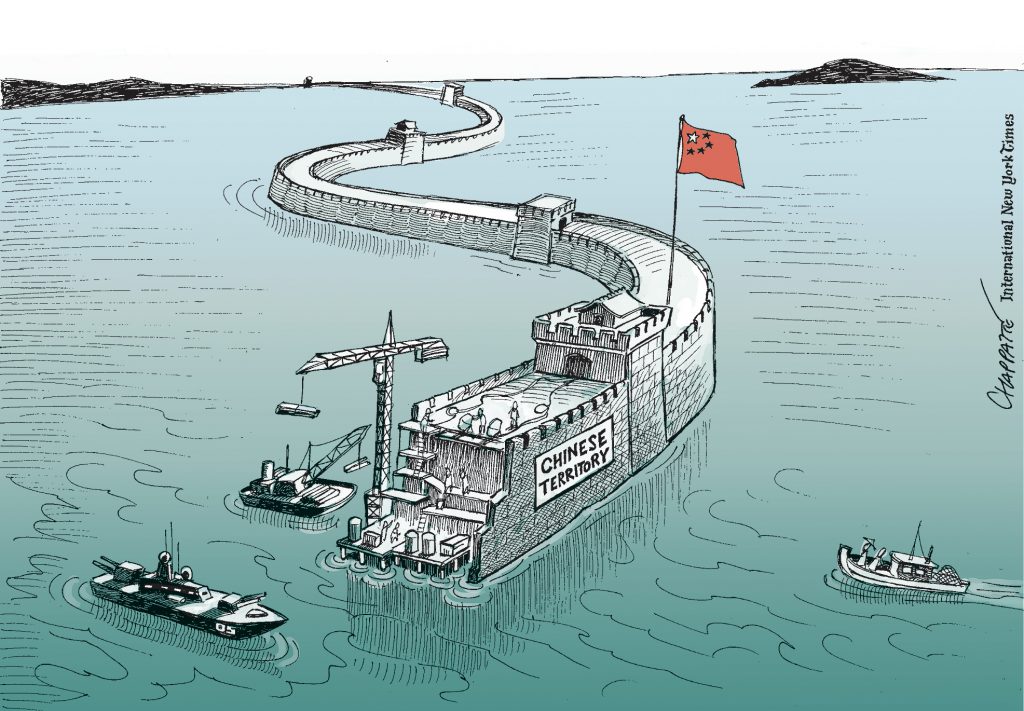The essays in this volume are the product of a new ‘research practicum‘ course in the Department of Political Science and International Relations at the Graduate Institute in Geneva. They build on the debates on ‘Urban Morphology and violence’ to reflect on the associations between cities – their political orders and disorders – and outcomes ranging from occupation and resistance to marginalisation and containment. These texts foreshadow the possibility of centring – and challenging – the urban in our understanding of contemporary conflict, violence and peace. They are a first step in opening up a research agenda for a more textured analysis of spatial, geographical and temporal dynamics within the city in relation to violence, and, therefore, the mobilisation of spatial, temporal and visual modes of analysis. The promise is to make visible the varied roles of urban morphologies – adding to the debate on cities in and as sites of conflict.
© Chappatte dans NZZ am Sonntag, Zürich
The multipolar world succeeding US hegemony in the early 21st century, the financial crisis of 2007 and the corollary decline of liberalism seem to have ushered in an era of economic nationalism. States are increasingly left to fend for themselves as multilateral mechanisms lose traction and international economic relations gain in toxicity. The sanctions, embargoes and retaliations arising from the war in Ukraine, but also an accelerating struggle for dwindling natural resources, have pushed these logics to new heights. This Dossier assesses ongoing geoeconomic transformations and their potentially devastating consequences.
-
I

War by Other Means? Geoeconomics in the 21st Century
Reading time: 6 min -
1

Globalisation: The Danger of Safe Spaces
Reading time: 4 min -
2

Risky Interdependence: The Impact of Geoeconomics on Trade Policy
Reading time: 4 min -
3

A New Page in Global Sanctions Practice: The Russian Case
Reading time: 6 min -
4

The Politicisation of the Commodities Trade
Reading time: 4 min -
5

Sanctions against Russia and the Role of the United Nations
Reading time: 4 min -
6

A Renewed Neocolonial Scramble for Resources?
Reading time: 5 min -
7

The Rise of Geoeconomics
Reading time: 5 min -
8

Debt as a Political Weapon?
Reading time: 5 min -
O

Global Sanctions: A Bibliography from the Graduate Institute
Reading time: 5 min













